The DNC Experience in Chicago: Behind the Curtain at a National Convention That Generated $371.4 million in Total Economic Impact
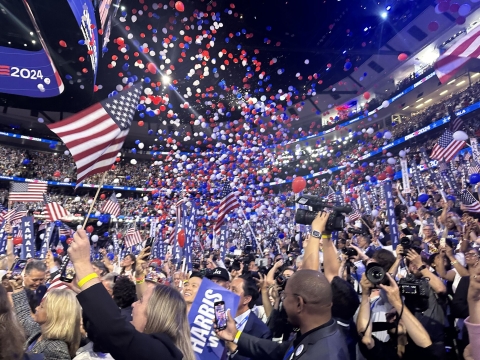
It’s hard to believe it had been eight years since the last full-fledged Democratic National Convention (DNC) was produced. After COVID forced the 2020 proceedings to go mostly virtual, the DNC production team was eager to get back to business as usual in 2024.
As move-in for the 2024 DNC was well underway, U.S. President Joe Biden announced on July 21 he would drop out of the 2024 presidential race—less than one month before the event was scheduled to open on Aug. 19 at McCormick Place and the United Center arena in Chicago.
Navigating uncharted waters, the DNC organizing team quickly pivoted to prepare for this year’s event to make history as the platform to nominate the first Black and South Asian female Democratic U.S. presidential candidate, Vice President Kamala Harris.
Despite this massive shift that amped up the importance of the delegate voting at convention, the 2024 DNC, held Aug. 19-22, was a monumental event that went off without a hitch, attracting more than 50,000 attendees, including 5,000 delegates and alternates and 15,000 members of the media.
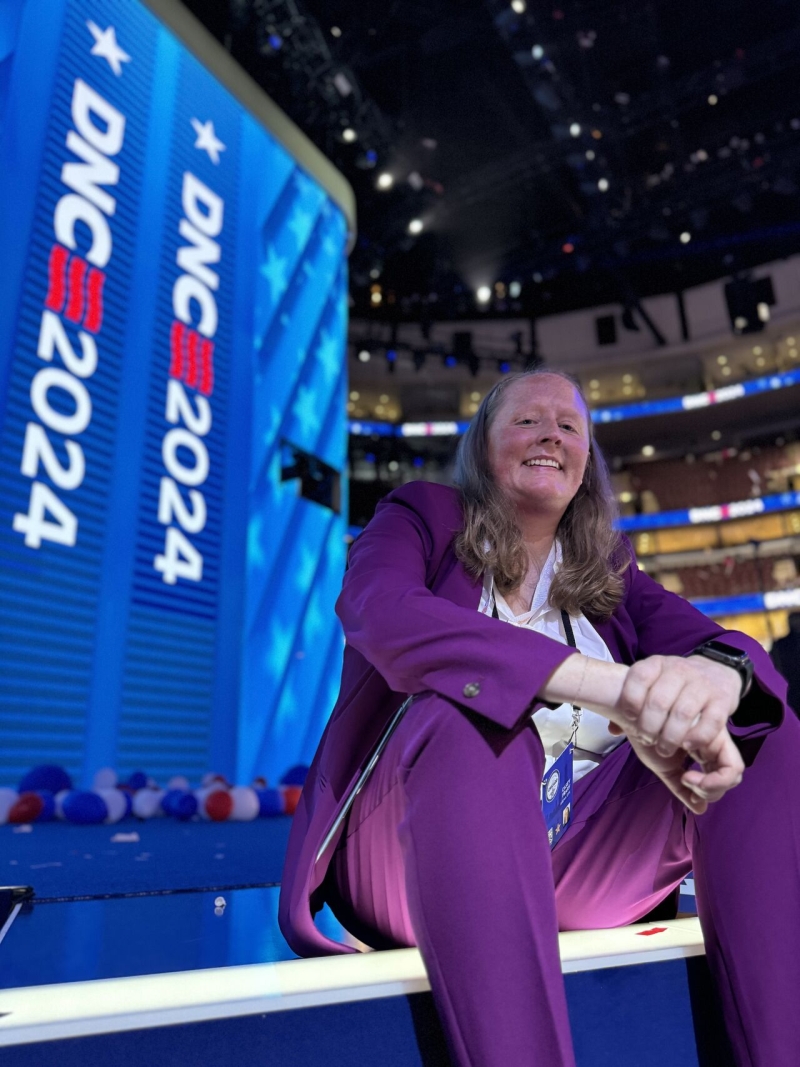
With high-profile speakers including former Democratic president Barack Obama and his wife, Michelle, actress Kerry Washington and Former Secretary of State and First Lady Hillary Clinton, the event had no shortage of logistical considerations, including transportation, housing, and security.
To get an insider's view on the logistics, planning, and execution of such a significant occasion, TSNN’s Danica Tormohlen spoke with Casey Frary, senior director, venue operations and Democratic National Convention senior advisor, and Lisa Miller, vice president, event and trade show production, Hargrove from Encore.
Their insights offer valuable lessons in flexibility, innovation, and collaboration. Whether it’s creatively integrating technology or building strong relationships with local partners, these strategies are essential for any event professional aiming to deliver exceptional experiences.
With evolving event technology and changing audience expectations since its last in-person event eight years ago, the DNC serves as a prime example of how large-scale events can continue to adapt and thrive, setting benchmarks for future events.
Here are eight takeaways from our conversation. Watch or listen to the full interview here.
1. The Planning Process
Frary, who was part of the initial site selection, provided insights into the extensive planning involved. The process begins with a meticulous two-and-a-half-year timeline that included sending out requests for proposals (RFPs) to potential host cities, followed by numerous site visits. This time, the DNC chose Chicago, after hosting in Philadelphia in 2016, Charlottle in 2012, and Denver in 2008. “We walked in the door of the arena on June 24, so if you can imagine the idea that this load-in happens for weeks,” Miller said.
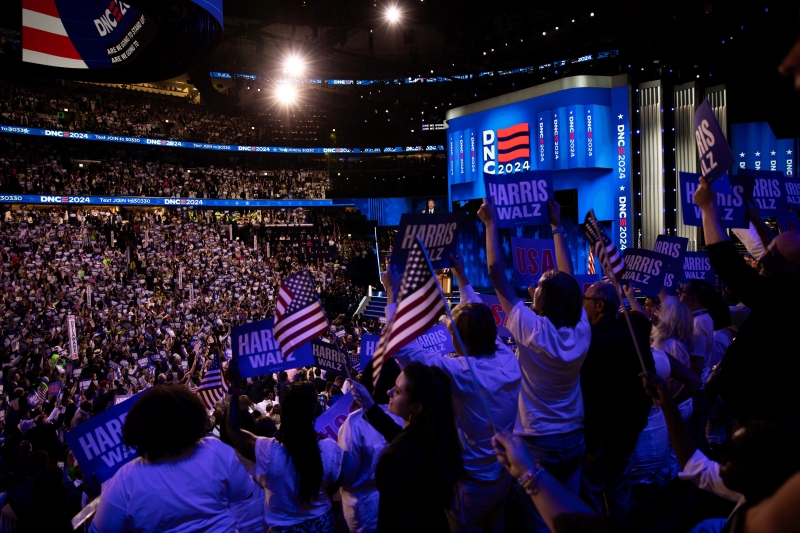
2. Lessons in Flexibility
Both Frary and Miller discussed the unpredictable nature of event planning, emphasizing the need for flexibility and the ability to adapt to last-minute changes. A notable challenge was the fluctuating weather conditions with summer storms in Chicago, which forced adjustments to the event's logistics. As Frary said, “Don’t let perfect be the enemy of good,” highlighting the importance of focusing on critical aspects and being adaptable when things don't go as planned.
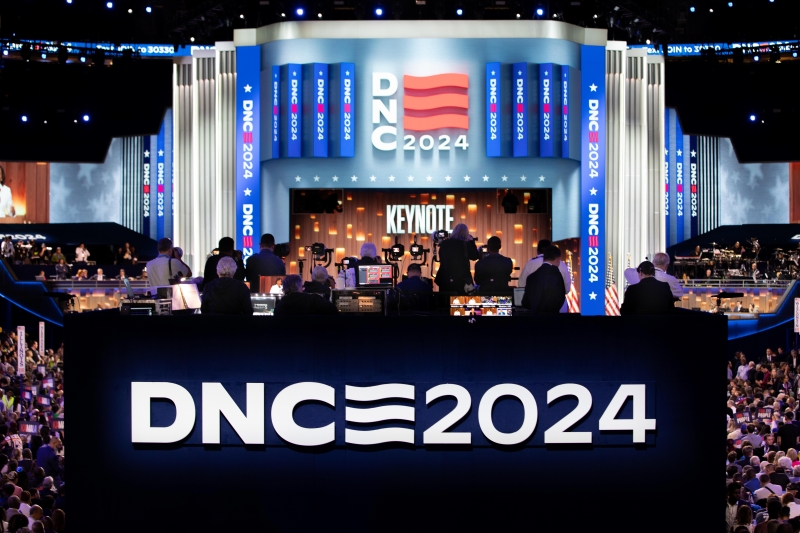
3. Key Tech Innovations
Tech advancements played a crucial role in the DNC’s success. The event featured an impressive mix of physical and digital elements, such as a massive, curved LED backdrop and innovative lighting effects through technologies like Pixmob, an infrared and radio frequency sustainable LED wristband like those seen during Taylor Swift’s Eras Tour. These technologies not only enhanced the visual appeal but also improved the overall attendee experience.
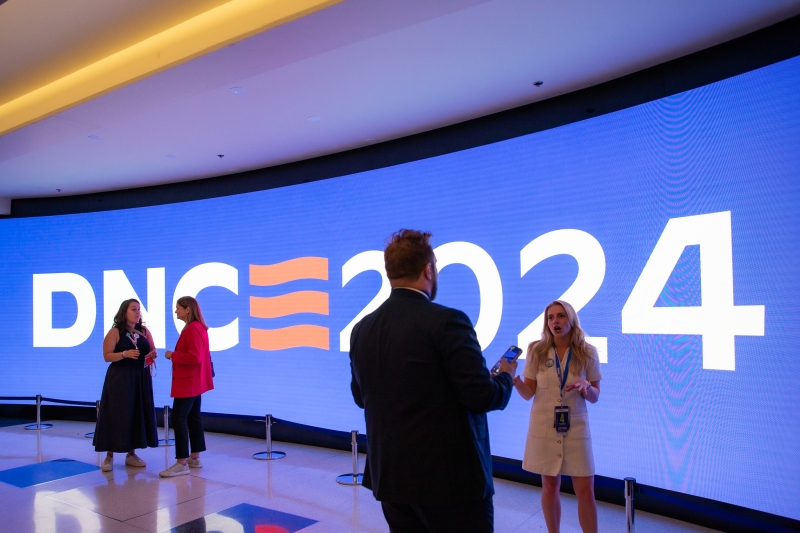

4. Budgeting
While the convention operated under a substantial budget of about $20 million for convention operations, managing resources effectively required strategic planning and prioritization, Frary said. “One of the people at the United Center described it as she does everything from Porta Johns to Jumbotrons,” Frary explained. “It's everything little to big––a lot of that is power, a lot of that is labor, a lot of FF&E (furniture, fixtures and equipment), and tents for the outdoor activities.” From the contractor perspective, Miller emphasized the importance of being realistic with budgets from the start and maintaining contingency plans for unexpected costs.
5. Economic Impact
The economic impact on host cities like Chicago is significant, extending to hundreds of millions of dollars, as local vendors and service providers are engaged throughout the process.
The convention exceeded economic and community impact expectations, thanks in large part to the commitment of the Chicago 2024 Host Committee and 2024 Democratic National Convention Committee (DNCC) to supporting local businesses, according to Choose Chicago.
In October, the CVB published a report prepared by Tourism Economics, an Oxford Economic company that specializes in global forecasting and analysis. Some highlights from the report include:
• The DNC drove an estimated $371.4 million in total economic impact, generating $28.7 million in state and local tax revenues.
• $75.5 million in Host Committee and DNCC total spending was within the city of Chicago, the highest local spend ever for a political convention.
• Nearly half (47%) of the Host Committee’s discretionary spending supported minority- and women-owned businesses.
Read the full impact report here.
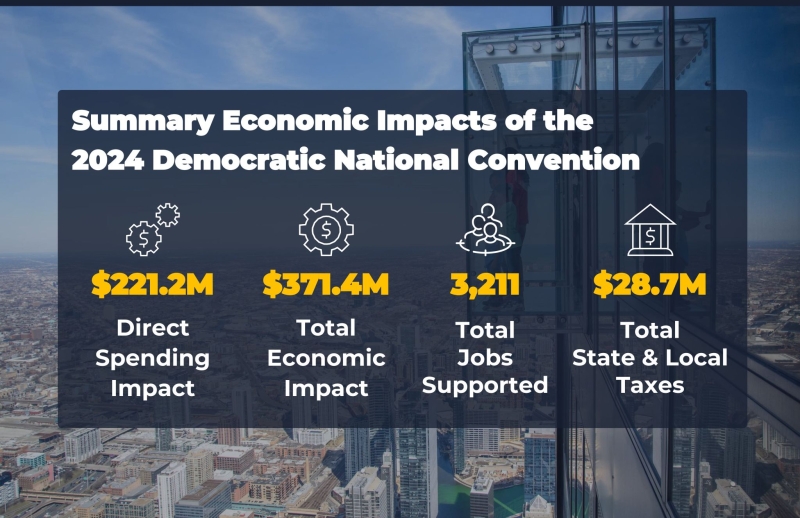
6. Influencer Integration
A standout aspect of this year’s DNC was the integration of influencers into the media mix. By creating dedicated spaces and opportunities for influencers to capture and share content, the event reached wider audiences and facilitated a more dynamic form of engagement.
“Not only did we have an influencer lounge, but also we had influencer suites and an influencer stage,” Miller said. “We actually carved out area on the floor that influencers could go out to and videotape themselves. It was the first time I’ve ever seen that really done well at a show, leaning into the influencer world and giving them the technology.”
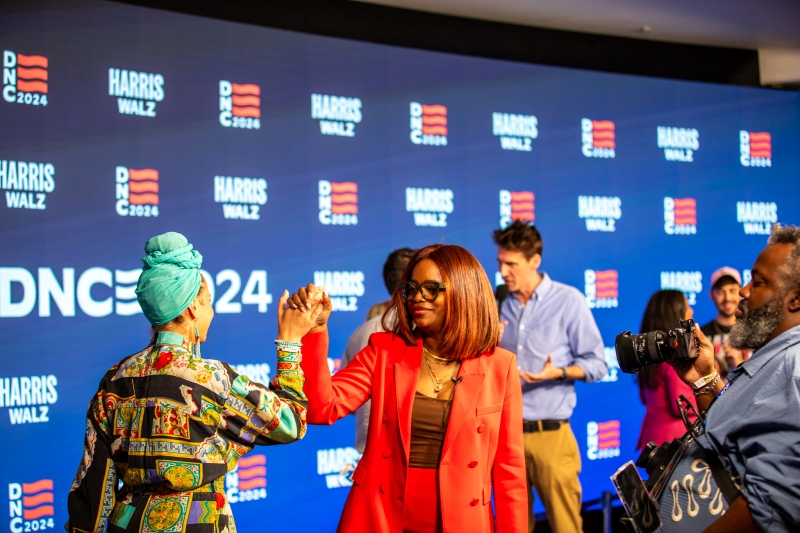
7. Community and Collaboration
What truly stood out was the sense of community and collaboration, both Frary and Miller said. Successfully executing an event of this magnitude involves countless individuals working seamlessly together. Their partnerships, especially with venues like the United Center, were integral to navigating the logistical complexities effectively. “We don't use the arena like a lot of events or even concerts,” Frary explained. “We do a lot of construction. We really utilize the building in a very different way.” The DNC took out fixed seating, transformed suites into white boxes for media broadcast teams to use as sets, and building press stand ups, Frary said.
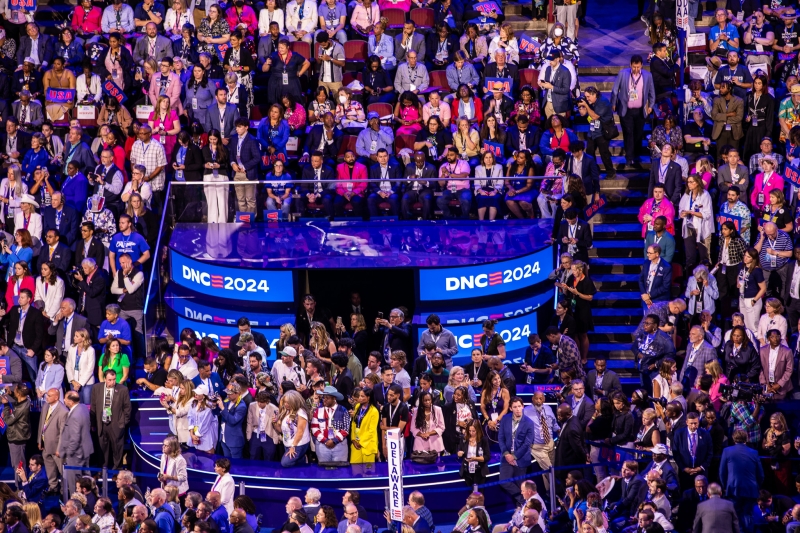
8. Venue partners
Official proceedings, primetime programming, and speeches took place at the United Center, which has hosted 70 million guests since its opening in 1994, including the 1996 Democratic National Convention. Home to the Chicago Blackhawks and Chicago Bulls, the arena will host more than 200 events this year, including the convention.
Official daytime party business, meetings, and briefings were held at McCormick Place, which hosts more than 200 conferences that draw 1.8 million guests each year and generates an estimated $1.8 billion in economic impact. Hotels on the McCormick Place campus also served as the headquarters hotel for Democratic staff and media.
Photos: Courtesy of DNC and Hargrove


Add new comment